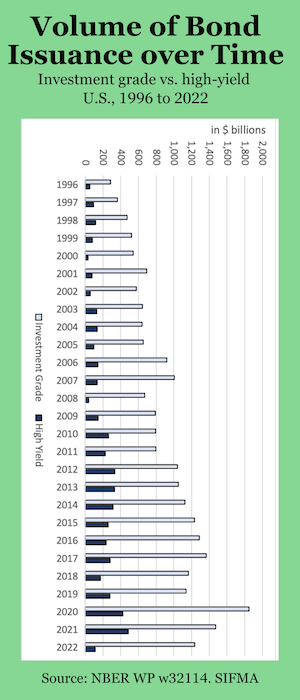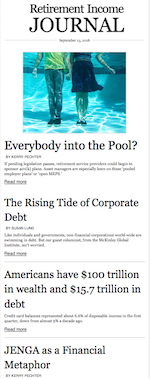The growing role of retirement advisors will be one of the most noteworthy changes the industry will see over the next five years, according to Diversified Investment Advisors’ new Prescience 2015: Expert Opinions on the Future of Retirement Plans.
Facing a need for “ongoing holistic service from a third party,” the report said, many plan sponsors will seek a professional retirement plan advisor who earns a fee or retainer instead of an asset-based charge.
“The emergence and organization of professional retirement plan advisors will have a profound impact on our business over the next five years,” said Joe Masterson, Diversified senior vice president.
Diversified predicted that:
- Among plan sponsors switching providers, 35% will use the services of a professional retirement plan advisor.
- Only 10% of plan sponsors will actually change service providers annually through 2015. More than one-third of plan sponsors will perform due diligence of their service provider.
- Seventeen percent will add or replace at least one investment option.
The Prescience study panel agreed that several additional trends will emerge over the next five years:
- Advisors will have established professional service standards in areas such as fiduciary practice, contracting, revenue mix and fee disclosure;
- Fee disclosure will make it difficult for plan sponsors with retirement plan assets exceeding $25 million to compensate an advisor in any way other than a direct fee for service—usually a set retainer;
- By 2015, advisors will no longer be in a position to receive compensation unless they assume ERISA Section 3(21) fiduciary responsibilities. This differs from the current regulatory framework, which allows plan sponsors to choose from other models including broker-dealer, consultant and advisor models;
- The trend toward reliance on professionals will also be seen at the participant level, as many American workers would prefer to rely on a knowledgeable expert to make their retirement plan investment decisions rather than learn about investments themselves.
Pressures on pricing will squeeze profitability throughout the industry, the study forecast. Sixty-two percent of the experts predicted that by 2015 service provider margins will fall below 11 basis points. In addition most plan sponsors will establish expense budget accounts in an effort to manage discrepancies between asset-based revenue from investment managers and the cost of services.
“Advisors, like service providers, will also experience fee compression as more business shifts from an asset-based compensation model to a retainer model,” noted Laura White, vice president of Marketing at Diversified.
Mergers and acquisitions in the benefits consulting and investment consulting arenas are expected to continue. In addition, the Prescience study panel expects at least two major service providers to spin off their retirement plan service business in an effort to meet corporate revenue targets and demands for complete open investment architecture.
Prescience 2015: Expert Opinions on the Future of Retirement Plans was conducted in the first quarter of 2011. Currently in the fourth iteration of a modified Delphi study, it examined trends in retirement plans with $25 million to $1 billion in assets. Sixty-eight retirement plan experts from 54 organizations nationwide answered the survey.
The panel was comprised of professionals in the retirement plans business representing policymakers, trade associations, research organizations, consulting firms, academic institutions, financial professionals, investment management firms, service providers and trade media. To request a copy of the study, email [email protected].


